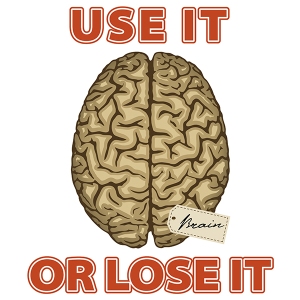
The most apparently intuitive truism about language attrition is: “the more you speak your first language, the less likely you are to experience attrition”. Or, in other words “use it or lose it”. Right?
Wrong.
Yes, I know, I found it hard to believe at first, too.
Firstly, all of the available empirical evidence is against it – and, believe me, we have tried. A large range of studies have been conducted, testing people’s language skills on the one hand and asking them to fill in long and tedious questionnaires on the other. The numbers have quite simply never supported the use-or-lose idea. Some people who say they literally have not spoken the language for decades are word-perfect. Others, who are married to another speaker of the same native language and have a huge circle of friends, sound totally foreign. (And, of course, in some cases it is the other way around.)

I believe the reason for this lies in how we store and access knowledge. Every time we want to recall a piece of information from memory, we have to make sure that we get the right piece, and not something that looks similar, sounds similar or means something similar. If you know two languages, you have an awful lot of such ‘competitors’ (for example, if you see an apple, you might have both the English word apple and the French word pomme to describe it). If you are reaching for the French word, you have to suppress or inhibit the English one. This takes effort, and bilinguals have to do this virtually all the time, so they become very good at it.
However, if you mainly speak your native language with friends and family, you may have much less practice at inhibiting the other one. Everyone is bilingual, after all, and if you cannot come up with the native word quickly enough you can just insert the second-language one. This, too, may become a habit, and you may eventually find it harder and harder to only stick to the native language without switching. If, on the other hand, you only ever speak the second language, your inhibition skills may have become very good over time, and you will be better at using the native language – once you’ve overcome the initial threshold.
